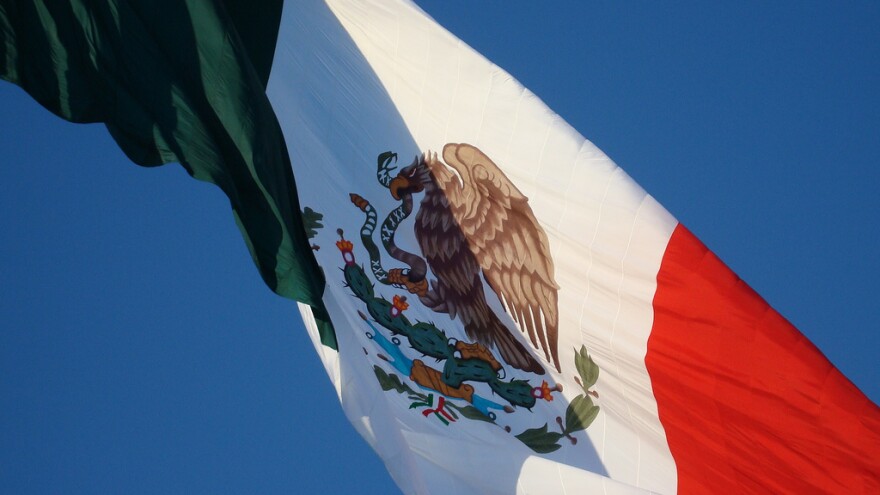Members of a teacher's union set fire to a local legislative hall. Molotov cocktails splatter against the walls of a ministerial building. A police commander is grabbed off the street by protestors, while students torch state-owned trucks and try to storm the national palace.
This all sounds like scenes from the Arab Spring. But these are snapshots from south of our border right now. It's a popular uprising that's spreading across Mexico triggered by the presumed massacre of 43 students in Iguala.
Some are calling this Mexico's watershed moment, including Alfredo Corchado, Mexico City correspondent for the Dallas Morning News and author of "Midnight in Mexico". He speaks with Texas Standard's David Brown about what's next for the country.
Interview highlights:
Why this moment may be more significant:
"It's the timing of this. This is the Mexican president's second year in office. He's been talking about a different narrative, trying to focus a lot more on the economy, etc. The second big factor here is social media ... they've been able to galvanize society in a much, much more effective way. It's no longer about blaming the authorities ... it's about shaming them."
How the massacre has shed light on political problems:
"I think what this incident has done is confirm and made clear just the collusion that there is between drug traffickers and authorities. ... It was a crystal clear moment when you see what people have been saying for a long time, which is the two are so colluded, the two are one and the same."
What it means for the Mexican people:
"I think it's healthy for Mexicans to take the streets and protest. I think it shows you that maybe the apathy has not grown so much in Mexico, that maybe there isn't that fatigue about the violence and the crime. Because let's face it, it's a story that's been there for the last 10, 12 years now. It's a time when people can take a step back and say, 'Wait a minute, what about rule of law? How can you build a country with a foundation made of quicksand?'"



